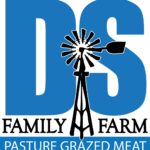Worried about what you are "really" eating? Have peace of mind with pasture grazed meats.
Grazing ice cream grass
In our solar powered steer post we described how cattle will select the tips of plants first, grazing to capture the highest amount of energy available. We call this grazing off the “ice cream”. Here is a video link from this past weekend of…
Solar Powered Steer
Cows have been described as “starvation” animals. Meaning that about every waking moment they feel on the verge of starving to death. So their natural instinct is to eat like it might be their last meal. When they can’t eat anymore they rest and chew their cud. Then back…
Animal Impact – reed canary grass example
Planned pasture grazing requires orchestrating cattle movement. Yep we think of our cattle moves like making music but we are really trying to get some desired effect applied to the land. Here is an animal impact example from this past spring. In an area invaded by…
Pasture Grazed vs Grassfed Beef
We use the terms “Pasture Grazed” and “Grassfed” to describe our cattle operation. So what’s the difference? The term grassfed (grass fed, grass-fed) refers to animals that are raised entirely without grain as part of their diet. Cattle are ruminants (have four stomachs) for digestion…
Grazing Stockpiled Grass
In earlier posts we have mentioned cattle grazing stockpiled grass. To explain, “stockpiled” grass is portions of pasture lands that were left un-grazed during the growing season for the specific purpose of grazing those areas during the non-growing season. We are now well into the non-growing season,…




